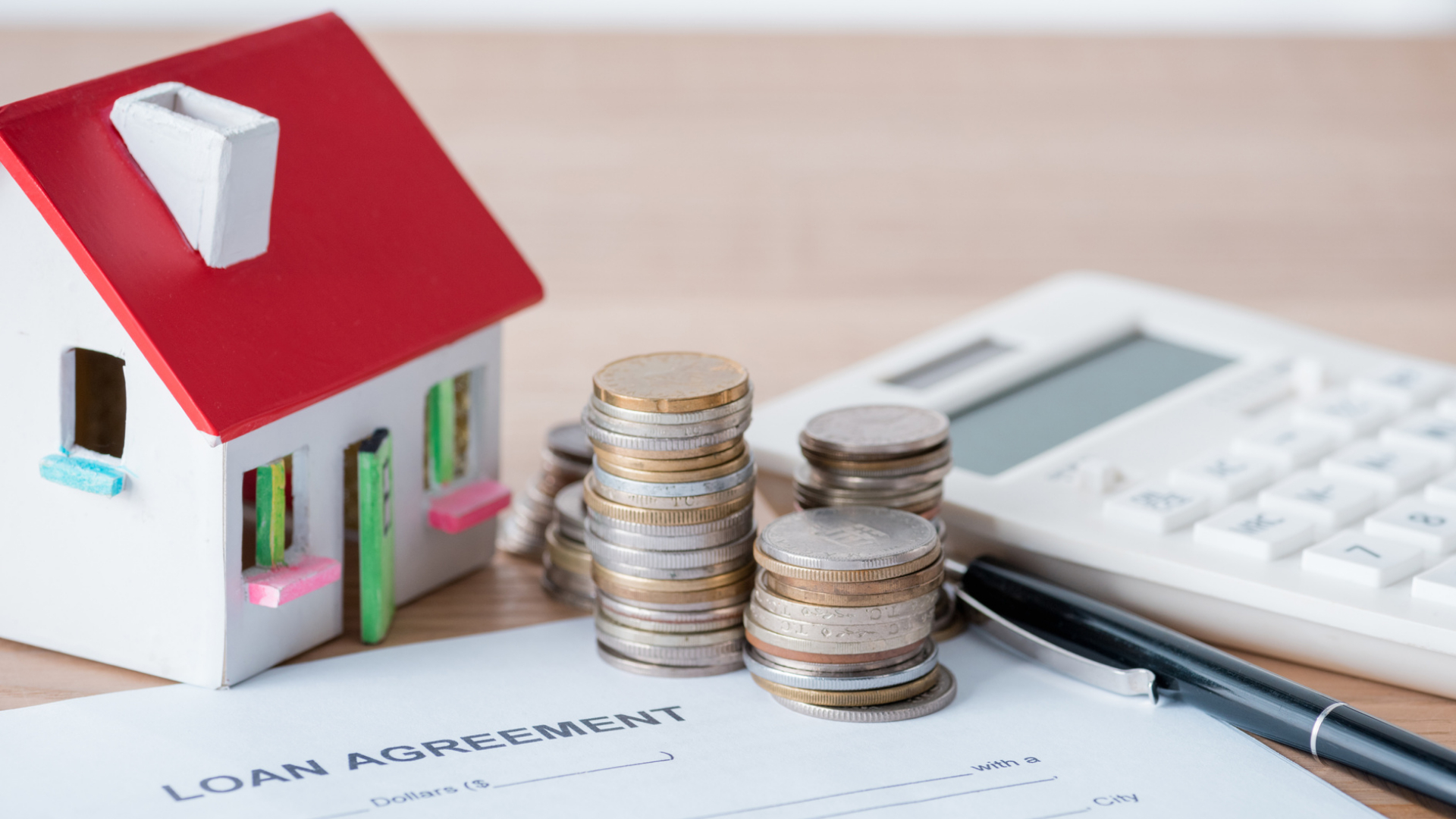The Ultimate Guide to Successfully Sell Your House in the UK
Table of Contents
- Decide if You Should Sell
- Figure Out Your Finances
- Decide if You Should Rent a House Next
- Choose an Estate Agent to Sell Your House
- Get an Energy Performance Certificate (EPC)
- Decide How Much to Sell Your Home For
- Prepare Your Home for Sale
- Hire a Conveyancing Solicitor
- Fill Out Relevant Questionnaires
- Accept an Offer
- Conclusion
Selling a house is a significant undertaking that involves a series of intricate steps, each playing a crucial role in the overall success of the transaction. As homeowners contemplate parting ways with their property, a strategic approach is essential to navigate the complexities of the real estate market.
This step-by-step guide aims to demystify the process, offering insights and practical advice on everything from initial considerations and financial preparations to the pivotal decision-making points that shape a successful home sale. Whether you're a first-time seller or looking to optimize your approach, this comprehensive guide provides a roadmap for a smooth and rewarding selling experience.
Decide if You Should Sell:
Before embarking on the journey of selling your house, carefully consider the driving factors behind this decision. Assess whether the need for additional space justifies the substantial costs associated with both selling and buying. Alternatives such as home improvements or downsizing should be explored, taking into account potential savings and lifestyle implications. Additionally, stay attuned to the ever-changing market conditions to make an informed decision about the opportune time for your property sale.
-
Evaluate Home Improvement Costs: Compare the expenses of building an extension, converting the attic, or other home improvements against the costs of selling and buying.
-
Explore Downsizing Options: If space is the primary concern, weigh the pros and cons of downsizing, considering various factors and options outlined in our guide.
-
Assess Renting Versus Selling: Depending on circumstances, renting out your property instead of selling might be a financially sound decision, providing flexibility and reducing time pressures.
-
Consider Current Market Conditions: Stay informed about the real estate market trends to determine the optimal timing for selling your property.
-
Review the Guide on Selling Considerations: Delve into our comprehensive guide to understand various aspects influencing the decision to sell your house.
Figure Out Your Finances:
Before initiating the sale of your house, it's essential to gain a preliminary understanding of your property's financial landscape. Utilize an instant valuation tool to estimate your home's worth, assisting in calculating potential profits and mortgage payoffs. If there's an existing mortgage, review the associated paperwork and consult with your lender to navigate early repayment charges or explore the possibility of porting the mortgage to a new property. This stage is an opportune time to consider remortgaging for a better deal, consulting with our fee-free mortgage partners to optimize borrowing potential.
-
Utilize Instant Valuation Tool: Gauge your property's value using a reliable instant valuation tool.
-
Review Mortgage Details: Scrutinize your mortgage paperwork, checking for early repayment charges and porting possibilities.
-
Explore Remortgaging Opportunities: If moving to a more expensive property, consider remortgaging for a better deal, consulting our mortgage partners for tailored advice.
-
Understand Approximate Costs: Acknowledge that initial figures will be approximate, with precise mortgage redemption figures available after contract exchange.
Decide if You Should Rent a House Next:
Opting to rent a house after selling can introduce flexibility and alleviate time pressures typically associated with buying a new home. While this choice adds to the overall expenses, it liberates you from compromising on the sale price, ensuring a more relaxed approach to securing your next property. Breaking the housing chain by renting enhances your attractiveness as a buyer, providing room for strategic decision-making.
-
Balance Expenses and Benefits: Weigh the expenses of renting against the benefits, considering the freedom it provides during the new home search.
-
Avoid Compromising on Sale Price: Renting post-sale eliminates the urgency to compromise on your property's sale price, providing a more favorable position for negotiations.
-
Strategic Decision-Making: Renting allows you to strategically time your onward purchase, avoiding rushed decisions and ensuring you find the perfect home.
-
Enhance Buyer Attractiveness: Breaking the housing chain by selling and then renting positions you as a more attractive buyer in the real estate market.
Choose an Estate Agent to Sell Your House:
Deciding how to sell your house involves selecting the right avenue, be it through a local estate agent, online platform, or independently. Each option comes with its own considerations, including costs, speed of sale, and personal involvement. When opting for a local estate agent, diligent research is key to identifying the most suitable one. The negotiation of fees, whether with an estate agent or online service, requires a strategic approach to ensure a fair deal.
-
Explore Selling Options: Decide between selling independently, through a local estate agent, or using an online platform, weighing the advantages and drawbacks.
-
Research Local Estate Agents: Thoroughly research local estate agents, considering their sales speed, success rates, and likelihood of achieving asking prices.
-
Negotiate Fees Strategically: Whether with a local estate agent or an online platform, negotiate fees diligently, aiming for a reasonable percentage, typically around 1% plus VAT for a sole agent.
-
Consider Online Estate Agents: Delve into the realm of online estate agents, comparing services and costs to determine the most cost-effective option.
-
Understand Responsibilities in Independent Selling: If considering independent selling, understand the commitment and effort required, acknowledging that it might not be suitable for everyone.
Get an Energy Performance Certificate (EPC):
Securing an Energy Performance Certificate (EPC) is a prerequisite before putting your property on the market. This standardized document evaluates the energy efficiency of your home, providing crucial information for potential buyers. Applying for an EPC early in the process ensures compliance with regulations and contributes to shaping a positive perception of your property in the market.
-
Prioritize EPC Application: Ensure that you have at least applied for an EPC before listing your home, understanding the reasons behind this requirement.
-
Know EPC Costs: Familiarize yourself with the costs associated with obtaining an EPC, obtaining quotes from reputable EPC surveyors.
-
Consider EPC's Impact: Understand the significance of the EPC in influencing potential buyers and meeting regulatory requirements.
-
Utilize EPC in Marketing: Leverage the EPC information in your property advertisements, complying with regulations and showcasing your property's energy efficiency.
Decide How Much to Sell Your Home For:
Determining the right asking price for your property is a critical decision that involves thorough research and market analysis. Engage in a comprehensive understanding of the local real estate market, gather valuations from multiple estate agents, and utilize online tools for an initial estimate. Balancing competitiveness with a realistic valuation is key, considering potential negotiations that may arise during the selling process.
-
Conduct Local Market Research: Dive into the local real estate market, studying recent sales, property features, and demand trends.
-
Seek Multiple Estate Agent Valuations: Obtain valuations from various estate agents to establish a baseline, but be cautious not to solely rely on the highest figure.
-
Utilize Online Valuation Tools: Leverage online tools for an instant estimate of your property's value, providing additional insights during the pricing decision.
-
Balance Competitiveness and Realism: Strive for a competitive asking price while maintaining realism, acknowledging the possibility of negotiations in the selling process.
Prepare Your Home for Sale:
Optimizing your property's appeal through home staging and presentation significantly influences its marketability. Invest time in decluttering, minor repairs, and aesthetic enhancements to make your home more attractive to potential buyers. Prioritize curb appeal, as first impressions play a crucial role in enticing prospective purchasers. Explore our guide on valuable tips to enhance your home's value and expedite the selling process.
-
Implement Home Staging Techniques: Utilize home staging strategies to present your property in the best light, potentially accelerating the sale.
-
Prioritize Decluttering: Remove excess clutter to create a clean and spacious environment, allowing buyers to envision themselves in the space.
-
Address Minor Repairs: Attend to small repairs and maintenance tasks, ensuring that the property is in top condition for potential buyers.
-
Enhance Curb Appeal: Focus on curb appeal, including well-maintained windows, a tidy front garden, and a well-presented exterior.
Hire a Conveyancing Solicitor:
Selecting a reliable conveyancing solicitor is crucial for navigating the legal intricacies of selling a property. Choose a solicitor before agreeing to the sale, and compare quotes and ratings to make an informed decision. Clarify the costs involved, including fees and disbursements, to avoid surprises during the process. Our guide on conveyancing fees offers valuable insights and a list of essential questions to pose to your chosen conveyancer.
-
Choose a Conveyancing Solicitor Early: Make an early decision on the conveyancing solicitor to facilitate a smooth progression of the sale.
-
Compare Quotes and Ratings: Research and compare conveyancing solicitors based on quotes, ratings, and recommendations from reliable sources.
-
Understand Cost Breakdown: Obtain a clear breakdown of conveyancing fees, covering costs, disbursements, and any additional charges.
-
Avoid Estate Agent Referral Fees: While considering recommendations from estate agents, be cautious about potential referral fees and compare them with other quotes.
Fill Out Relevant Questionnaires:
As part of the selling process, you'll be required to provide detailed information about your property through various forms and questionnaires. These documents aim to furnish the buyer with comprehensive insights into the property, addressing legal and practical aspects. If you're selling a leasehold property, additional documentation like a leasehold information pack is necessary. Familiarize yourself with the conveyancing process for sellers, ensuring a smooth transaction.
-
Complete Property Information Documents: Fill out forms and questionnaires providing essential information about your property, ensuring transparency in the sale.
-
Address Leasehold Requirements: If applicable, prepare a leasehold information pack alongside standard seller's documentation for leasehold properties.
-
Facilitate Smooth Transaction: Understand the importance of providing accurate and detailed information, contributing to a seamless conveyancing process.
Accept an Offer:
Receiving an offer on your property is an exciting milestone, but it necessitates careful consideration and negotiation. The estate agent is legally obligated to communicate all offers to you, giving you the flexibility to assess various aspects before making a decision. While an initial offer might not always align with your expectations, strategic negotiation and a clear understanding of buyer types can lead to a favorable outcome.
-
Evaluate Different Buyer Types: Understand the characteristics of various buyer types, considering factors like being a first-time buyer, having a property to sell, or offering cash.
-
Negotiate Strategically: Engage in strategic negotiation, considering the length of time between exchange and completion, inclusion of fixtures and fittings, and potential discounts based on survey findings.
-
Consider Legal Implications: Acknowledge that accepting an offer is not legally binding, providing flexibility for adjustments or acceptance of higher offers.
-
Mitigate Risks of Gazumping: Be aware of the risks associated with gazumping, where a higher offer is accepted after initially agreeing to an offer.
Conclusion:
Selling your home is a multifaceted process that demands careful consideration and strategic decision-making at each stage. As you embark on this journey, it's essential to approach the sale with a well-thought-out plan, leveraging resources and guidance to navigate potential challenges. From the initial decision to sell to the final completion, each step contributes to the overall success of the transaction.
In conclusion, the key takeaways include:
-
Strategic Decision-Making: Assess whether selling is the optimal choice for your circumstances, considering factors like space needs, market conditions, and potential cost comparisons with home improvements.
-
Financial Preparedness: Delve into your financial landscape, estimating the value of your property, understanding mortgage implications, and exploring remortgaging opportunities for a smoother transition.
-
Market Timing Considerations: Evaluate whether renting after selling aligns with your objectives, providing flexibility and alleviating time pressures associated with buying a new home.
-
Agent Selection: The choice between traditional, online, or self-selling hinges on your preferences, organizational skills, and willingness to dedicate time and effort to the selling process.
-
Energy Performance Certification: Ensure compliance with EPC requirements, initiating the process before listing your property, and addressing potential Green Deal plan considerations.
In summary, the journey to sell your home involves careful planning, effective preparation, and informed decision-making. Whether you opt for the traditional route with an estate agent or venture into self-selling territory, being well-informed and proactive sets the stage for a successful and rewarding selling experience.





